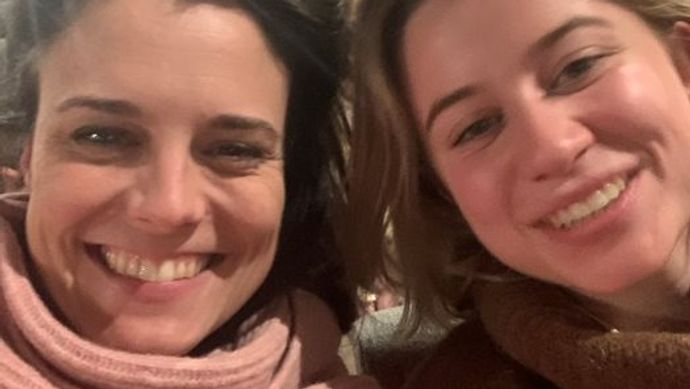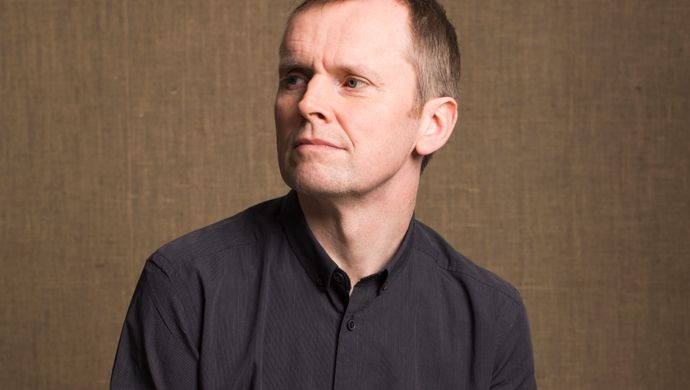Inside Beethoven's head
A column by Cédric Tiberghien
‘You are ready for Beethoven.’ When my piano teacher uttered those words, I knew no end with my joy. I was ten years old, and it felt like I was allowed to touch the Holy Grail. I learnt his 'Nineteenth Piano Sonata' in one day: that's how excited I was. Beethoven was God even then.
My teacher had already told me so much about him. About his piano concertos, his symphonies. At home, we often listened to his piano trios. But playing his music myself: that was a milestone. So I didn't hesitate for long when, a few years later at the conservatory, my teacher Gérard Frémy made me choose between Brahms' 'Händel Variations' or Beethoven's 'Eroica Variations'. It was the beginning of a love that lasted for years. I devoured his music. The very next year we had a project in which I, together with Gérard and a fellow pupil, played all of Beethoven's variations. For three evenings only Beethoven. That's when I completely immersed myself in it. A new world opened up.
After all, you never feel as close to Beethoven as you do to his variation series. Of course, his piano sonatas are perfect, but precisely because of that perfection, they create a distance. Whereas with the variation series, you just feel like you get to stand in the lab with Beethoven. The master at work, trying out new things. Sometimes successfully, sometimes failing. Going in a botched direction, only to hobble on to a new idea five seconds later. I immediately felt moved because I never before had the case to be so close to the composer. I loved being on his skin, getting inside his head.
More than with other works, the ‘Diabelli Variations’ give you the feeling that he thought everything through a hundred times. Because he could no longer hear by then, there is a certain distance to the instrument in it. And just that gives him enormous freedom. It incorporates a long period of reflection, which did not happen on the instrument but purely in his head. When he wrote it down , he had been brooding on it for several years. The structure of the ‘Diabelli Variations’ is also so well thought out. It feels like discovering a new world. And like so many voyages of discovery, you already lose your way occasionally and then find it again.
It feels like he wanted to look back on his life with this work. He may have known that this would be his last major piano work, so it had to be a reflection on everything he had written before. A kind of farewell letter. Especially when you know that the opening theme is not that exceptionally strong. A basic waltz, with no clear melody, with a simple harmony. And what does Beethoven do in his first variation? He turns it into a march! He simply destroys the theme from the first variation, and then tries to glue it back together in 33 different ways. It is not about the theme: it is about Beethoven and what he can do with music.
His way of working was hugely modern. Consider the opening motif of his ‘Fifth Symphony’. Four notes and one rhythmic pattern - it's already in your head - is enough to extract half an hour of music. Like taking a microscope to find the smallest possible cell, because then you can go in the most possible directions. Gÿorgÿ Ligeti exhibits a similar sense of freedom in his ‘Musica Ricercara’. He imposes a huge restriction on himself in this early work: he builds up the cycle by playing more and more different notes. But this also implies that he starts the work with just one note. Just try to get an interesting melody out of that. But by working in different octaves, with different lengths, different rhythms, and articulation, he succeeds anyway. It is reminiscent of Georges Perec's famous novel ‘La Disparition’, in which he does not use the letter e a single time. At first, you think: this is a joke. But soon you are completely engulfed into the magic of the music.
I have had the privilege of immersing myself in Beethoven for more than 30 years. I will never be able to fathom him completely. For instance, it was an eye opening experience for me when I realised what an unusually funny man he was. It feels like a long walk with a friend. Sometimes you talk endlessly, sometimes you coexist in silence. But either way: you get to know each other better. So I hope that after tonight you will also feel that you know Beethoven a little better.








